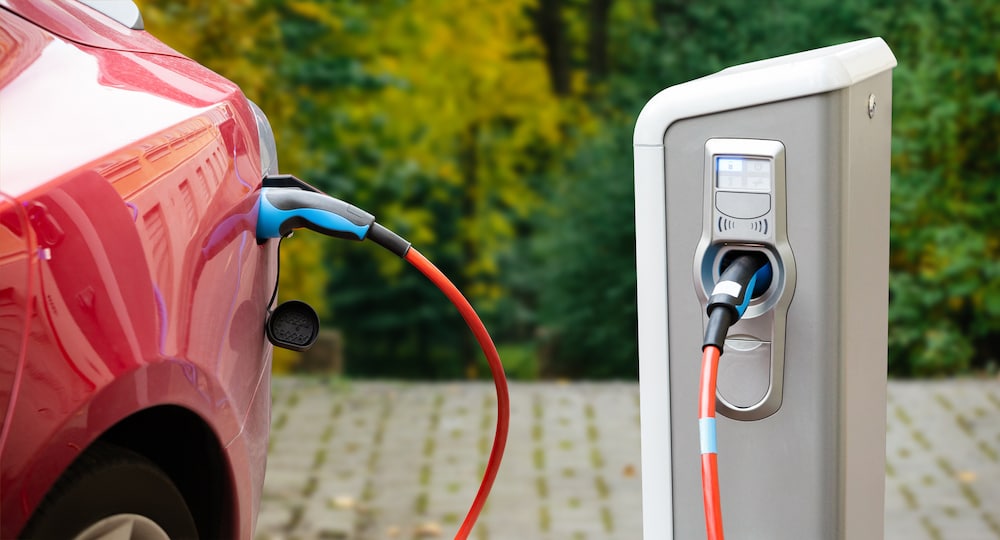Uber announced last week that it would halve service fees for all electric vehicles (EVs) for the next year – which the ACT Government says is a good first step for its own commitment to use only zero-emission rideshare vehicles by the mid-2030s.
“The move by Uber Australia to encourage more drivers of electric vehicles to join the platform is a welcome one,” said Shane Rattenbury, ACT Minister for Emissions Reduction. “The ACT Government is keen to work with all transport providers that can help accelerate the transition to zero-emission transport.”
Australia trails behind the rest of the world in adopting EVs, so an electric shock might be the stimulus it needs.
According to the Electric Vehicle Council, EVs were only 0.7% of the million vehicles sold in this country last year – compared to 10% in the EU, 11% in the UK, and 75% in Norway. Chief executive Behyad Jafari said in March that Australian electric car sales were stagnant.
“Australia has marked itself out as a uniquely hostile market to electric vehicles,” he said.
“Australian drivers are ready to join the exciting global electric car transition, but our politicians are yanking the handbrake.”
Released a month before, the Federal Government’s Future Fuels Strategy did not include financial support for motorists to buy electric cars, targets for new EV sales, or minimum fuel emissions standards, the ABC pointed out.
“Australia is an embarrassing laggard when it comes to transitioning to electric vehicles,” Mr Rattenbury said.
Uber’s general manager, Dom Taylor, believes his company could speed up the transition to zero-emission transport. Uber wants all rides in the world to be in zero emission vehicles (ZEVs) or through micromobility (small, lightweight vehicles like bicycles and e-scooters) and public transport by 2040.
Mr Taylor said one EV on Uber could help 100 riders a month travel, compared to a single person travelling to and from the office a couple of times a week. When rideshare drivers switched to EVs, they saved three to four times as many emissions as average car owners, because rideshare drivers used their vehicles more.
There are more than 70,000 drivers on the Uber platform, but less than 1% are electric vehicles.
To encourage more Australians with EVs to share sustainable rides with Uber, Mr Taylor said that from 1 July 2021 to 30 June 2022, all drivers of battery electric vehicles (BEVs) would pay half the service rate they otherwise would.
“We’ll do this for 12 months and see where we stand,” Mr Taylor wrote. “We want to see more drivers of electric vehicles join the platform; we want to … make it more economical for existing electric vehicle drivers to stay on the platform; and we want to … match the commitments we’ve made overseas right here at home.”
Leon Minervini, a Sydney-based electric vehicle Uber driver, said: “Halving the service fees is huge. Not only will it encourage drivers to take up EVs, but it will also increase earnings and ultimately result in more riders experiencing EVs first hand. Most of my passengers have loads of questions about EV ownership and are always surprised and intrigued by the many benefits. The sooner people become exposed to EVs, the better it is for our environment.”
According to Mr Rattenbury, “rideshare companies are stepping up and offering their own incentives to cover the gaping hole left by the lack of action from a national level”.
He said the ACT Government was encouraging Canberrans to switch to EVs as part of its plan to make Canberra emissions free by 2045. The Sustainable Household Scheme would provide interest-free loans for EVs and charging stations; government vehicles and buses will be electric by 2024; and rideshare vehicles, public transport, garbage trucks, and taxis will be ZEV by the mid-2030s.
“In stark contrast to the Federal Government, the ACT is national leader in clean, green transport,” Mr Rattenbury said. “As more vehicle manufacturers phase out production of fossil fuelled cars, it’s the simple reality that we need to ready our country for zero emissions vehicles.”
Meanwhile, in NSW, Transport Minister Andrew Constance today opposed a proposed government levy on EVs, arguing instead that the government should provide incentives such as subsidised car parks and waiving stamp duty.
For more news:



